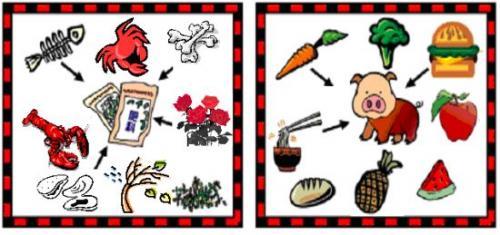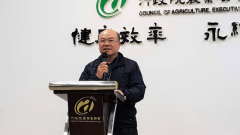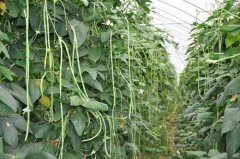Raising pigs with food waste: it is forbidden to raise pigs with food waste, which may become a route for the spread of classical swine fever virus in Africa.
If African classical swine fever virus comes into China, then kitchen waste is also a very risky route of transmission. Let's take a look.
If Chinese African classical swine fever virus comes in, kitchen waste is definitely a way of high risk, but at present, after stocktaking, the Council of Agriculture has gradually grasped the list of food waste pig farmers. In the first stage, 66 pig farmers without food waste cooking equipment have been asked to switch to feed pig farming or leave animal husbandry. Now they are dealing with the second stage, that is, 1155 kitchen waste pig farmers with equipment have to pass the inspection of environmental protection units within a week. Otherwise, you also have to apply for conversion to feed pig farming or choose to leave animal husbandry before March 31.

As for the remaining 357 food waste pig farms under the supervision of environmental protection units, because they are generally large in scale and legal operators, agricultural administration and environmental protection units are now required to inspect the scene every day to make sure that these operators have truthfully carried out the requirements of cooking standards. Jincheng stressed that these three stages of control is the most appropriate approach at present, in the face of the epidemic of classical swine fever in Africa and the transformation of food waste pig farmers. "you can't just deal with it from a zero-sum point of view," veterinary experts in colleges and universities agree that this approach has minimized the risk.
Xu Rongbin, head of the Animal epidemic Prevention Section of the Bureau of Prevention and Quarantine, added that food waste is not only a problem of environmental protection units. if food waste is hastily banned from raising pigs, households or restaurants have nowhere to go to the gutter or row, and do not do a good job of recycling it. If mice, cats and dogs go to eat, on the contrary, it will accelerate the risk of the spread of the virus. The industry is fighting, and everyone should think about the future of the pig industry as a whole.
Pig Youth Alliance: still does not rule out going north to protest on the 17th.
Some feed pig farmers also put forward practical suggestions at the scene. He said that at present, scraps such as pig intestines and duck intestines slaughtered in some slaughterhouses will also flow into food waste to raise pigs for reuse, and if this kind of waste is contaminated, there is also a risk of spreading virus. He called on the government to assist the industry to increase the proportion of plant-based materials in food waste as much as possible, such as wine meal, so as to reduce the possibility of high-risk food flowing into kitchen waste for reuse. Golden City said it would take the proposal back to the EPA for discussion.
At the end of the forum, the Taiwan Pig Youth Federation handed over a letter of petition to Jincheng, once again calling on the government to completely ban pig farming from food waste as soon as possible. Liu Zhiwei, founder of the alliance, stressed that since the Council of Agriculture had previously said that if there was an outbreak of African swine fever in Taiwan, pig farming with food waste would be banned, which means that the government was ready. If the Council of Agriculture delayed to respond to the sunset of the current 357 legal food waste pig farms, pig farmers still did not rule out going northward on the 17th to protest.
- Prev

The latest national egg quotation: the price of eggs is rising, and the gap between supply and demand of 5% eggs can be made up as soon as February.
Have you bought any eggs recently? Have you noticed that the price of eggs has gone up? and what I want to say next is that not only the price of eggs has gone up, but there is also a shortage of exports. Let's have a look. At present, the producing area price of eggs has risen from 33.5 yuan per jin to 36.5 yuan.
- Next

Detection methods of sulfur residues: detection of organic sulfur residues in organic vegetables, harm of sulfur residues in food
Organic sulfur residue test in organic vegetables, do you know how to do the test, what is the method? If you don't understand, let's take a look at it. The second report on the inspection of pesticide residues in organic vegetables was reported by consumers that the detected agents were all dithioamino groups.
Related
- A one-day flower show brings 130 million yuan in orders! Nanhai, this Phalaenopsis exhibition is amazing
- What do the flower language and meaning of Lutheran tree mean? Precautions for planting Lutheran tree
- Encounter Chaoshan Kongfu tea, not without this cup of Phoenix single clump
- The durian market in Vietnam and Thailand is flooded. The price of imported durian has plummeted by 30-40% in a month.
- Shanghai solved the problem of local vegetable supply by planting 80,000 mu of green leafy vegetables.
- Wageningen University has become the best agricultural university in the world for the seventh time in a row.
- The strongest export season of South African grapes is full of challenges, with exports to Russia falling sharply by 21%.
- Sri Lanka is on the verge of bankruptcy, "Tea for debt" Organic Agriculture Revolution aggravates the Food crisis?
- Turning waste into earthworm manure and worm manure into organic fertilizer-A new choice for auxiliary farming
- Organic rice growers shoulder the responsibility of nurturing agricultural talents! Yinchuan Sustainable Farm with Organic Life Camp

